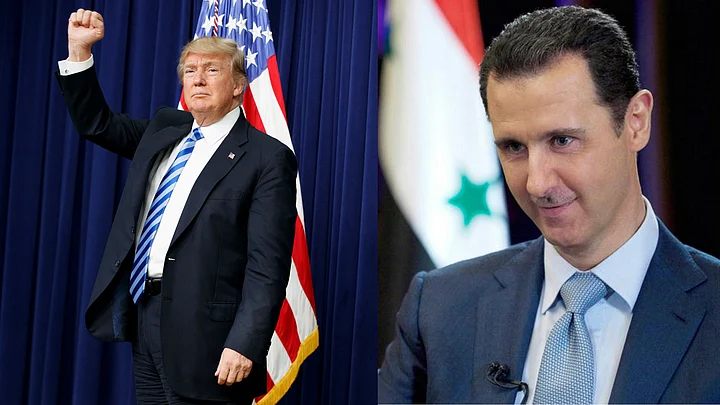In one of the most public about-turns in its foreign policy, the United States of America has announced that its Syria policy has undergone a change, with the removal of Syrian President Bashar al-Assad no longer being a top priority.
US Ambassador to the United Nations Nikki Haley made this announcement recently. Earlier, US Secretary of State Rex Tillerson had said that Assad's long-term position would be "decided by the Syrian people".
What Exactly Is the Shift?
The country's previous policy on Syria had aimed at replacing Assad with a democratic government. Under the same policy, the Obama administration provided support to the Syrian rebels. The tacit support provided by the US grew till the dramatic rise of the Islamic State in Iraq and Syria (ISIS) forced the US to divide its attention between supporting a future democratic regime in Syria and eliminating ISIS from the region.
Under President Trump, this situation seems to be changing. The President had already declared eradicating ISIS to be a cornerstone of his foreign policy during his campaign. The recent statements by Haley and Tillerson mark a departure not just from the earlier policy, but also the stand adopted by allies in Western Europe.
The paradigm-shifting statements were soon followed by suspected chemical attacks thought to have been carried out by the Syrian army in Idlib, a rebel-held province. While the Syrian army has denied attacking the area, the US, UK and France have proposed a UN resolution condemning the attack. The matter will come before the UN soon.
Russia’s Role
Some might suggest a certain ‘strongman's’ closeness with the US President as a possible reason for the shift in policy, but this does not seem likely. Trump's apparent bonhomie with Russia cannot extend to Syria, mostly because any negotiations about stability in the country involve Iran, a country Trump vacillates between threatening and castigating.
Haley's statements could also be an effect of the Assad regime's recent victories. With Russian and Iranian help, Assad has managed to recapture much of the rebel-held areas. The most prominent victory was the fall of Aleppo last year. With the change in Assad's fortunes, another country has witnessed a resurgence of importance in international affairs – Russia.
Russia is currently one of the main players in the Syrian negotiations, edging out America and Europe. Another possible reason for the US shifting focus could be the realisation that it is not one of the key players in this scenario, being nothing more than a complaining kid left out on the sidelines. The recent draft resolution prepared by the US, UK and France illustrates their attempts to consistently be part of a conflict in which the major players now are Russia, Iran and Turkey.
Saving Face
But the most probable reason for the shift in policy may be the simplest one. The move is a face-saver. The US entered the Syrian civil war in support of rebels who promised democracy. Its antipathy towards the Assad regime became tempered by the rise of ISIS. Assad's regime was tolerated since it opposed the terror group as well. The looming threat of ISIS also brought Russia and USA together to resolve the situation in Syria (but not without frequent conflicts and pauses). Slowly, the focus of American policies shifted from regime change to eliminating terrorism.
At the same time, the support for extremist ideology among some of the rebel groups split the Syrian opposition and bled overt foreign political support for it. The infighting between moderate and extremist groups within the rebel coalition has only made matters worse.
With Assad gaining ground, and concerns that support to rebels means indirect support to al-Qaeda and ISIS, the US is in a quandary. The promises it made of promoting democracy and ending tyranny are seeming difficult to achieve. The best way it has to extract itself from the whole mess while retaining a shard of its dignity, is to change its entire position, both moral and actual. But this means the country has to accept that it is cutting its losses and admit to being ineffective in preventing, minimising or ending the conflict. The eventuality exists, and grows, that America's statements may embolden Assad and his allies to recapture rebel-held areas by any means.
In the end, America's statements on the recent chemical attacks and those about regime change earlier are just attempts at a precarious balancing act between the image of an international morality champion, and a pragmatic conflict deserter. The way forward will be the one that provides it with more international clout, be it regime change or destroying ISIS.
(Priyale Chandra is currently pursuing her Masters from AJK MCRC. Her major interests are international affairs, literature, politics and history. She can be reached @PriyaleChandra. This is a personal blog and the views expressed above are the author’s own. The Quint neither endorses nor is responsible for the same.)
(At The Quint, we question everything. Play an active role in shaping our journalism by becoming a member today.)
